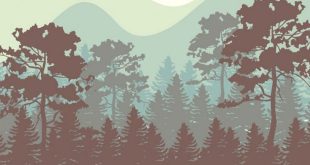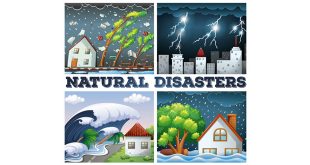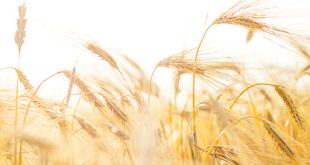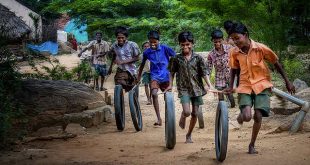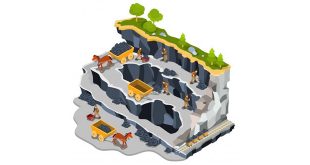Resources: 8th Class NCERT CBSE Social Science (Geography) Chapter 01 Question: What is the condition for a substance to be called a resource? Answer: A substance needs to have some utility to be called a resource. Question: What do you understand by the word “utility”? Answer: If a substance can …
Read More »NCERT 8th Class (CBSE) Social Science: Natural Resources – Natural Vegetation
Question: What is the Vanamahotsava? Answer: The social programme of planting trees, organised at community level is called Vanamahotsava. Question: How is a bird like vulture important for the ecosystem? Answer: A vulture feeds on dead livestock and so it cleanses the environment. Question: What is the distinguishing feature between evergreen …
Read More »NCERT 8th Class (CBSE) Social Science: Disaster And Its Management
Question: Distinguish between the following: Answer: 1. Focus and epicenter: Focus: Focus is the point below the surface of the earth where an earthquake originates. This is the point where rocks first rupture or break when an earthquake takes place due to movement of bedrock and release of energy in …
Read More »NCERT 8th Class (CBSE) Social Science: Human Resources
Question: What is the present average density population of World and India? Answer: Average density population of the world is 45 persons per sq. km. and India is 364 persons per sq. km. Question: Name is least populous continent of the world. Answer: Antarctica is the least populated continent in …
Read More »NCERT 8th Class (CBSE) Social Science: Industries – Comparative Studies
Question: Name large scale industries. Answer: The large scale industries are as under: Textile industries Iron and Steel industry Sugar industry Cement industry Aircraft industry Question: Why is iron and steel industry called basic industry? Answer: The iron and steel industry is called a basic industry because it provides iron and …
Read More »NCERT 8th Class (CBSE) Social Science: Major Crops And Agricultural
Question: Write a short note explaining the different cropping seasons. Answer: There are three major cropping seasons, i.e. Rabi, Kharif and Zaid. Rabi: Crops are sown in winters between October to December and harvested between February to April. Major crops of this season are: wheat, barley, peas, gram, and oil seeds. …
Read More »NCERT 8th Class (CBSE) Social Science: Natural Resources – Land, Soil and Water
Question: What are the possible reasons behind the uneven distribution of population around the world? Answer: The reasons behind uneven population distribution are mainly the varied conditions of land and climate. Question: Give three common forms of land use. Answer: Three common land use forms are: As cropland Pasture Forests. …
Read More »NCERT 8th Class (CBSE) Social Science: Manufacturing Industries
Question: Define industry. Answer: Industry refers to an economic activity that is concerned with production of goods, extraction of minerals or provision of services. Question: Name three common methods of classifying industries. Answer: Industries are classified according to raw material used, size and ownership. Question: Expand the abbreviation AMUL. Where …
Read More »NCERT 8th Class (CBSE) Social Science: Agriculture
Question: What is the basic function of the three basic types of economic activities? Answer. The three types of economic activities are involved in the transformation from a plant to a finished product. Question: What are tertiary activities? Answer: Tertiary activities are those which provide support to primary and secondary …
Read More »NCERT 8th Class (CBSE) Social Science: Minerals and Power Resources
Question: Differentiate between a rock and an ore. Answer: A rock is an aggregate of one or more minerals. An ore is a rock from which minerals are mined. Question: Define quarrying. Answer: Quarrying is a process of extraction in which minerals lying near the surface are simply dug out. …
Read More » Class Notes NCERT Solutions for CBSE Students
Class Notes NCERT Solutions for CBSE Students

